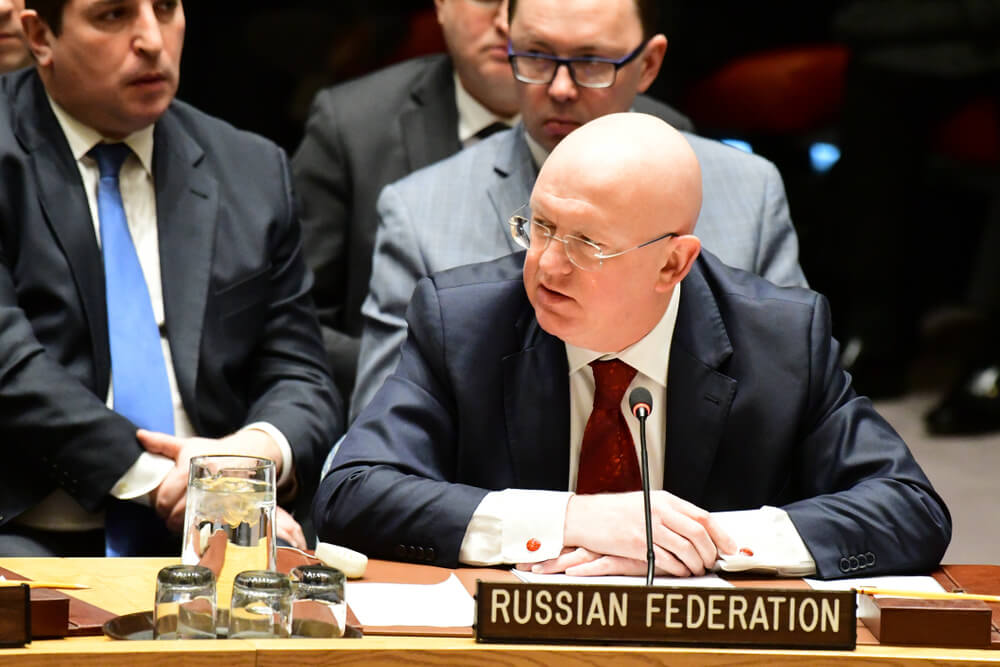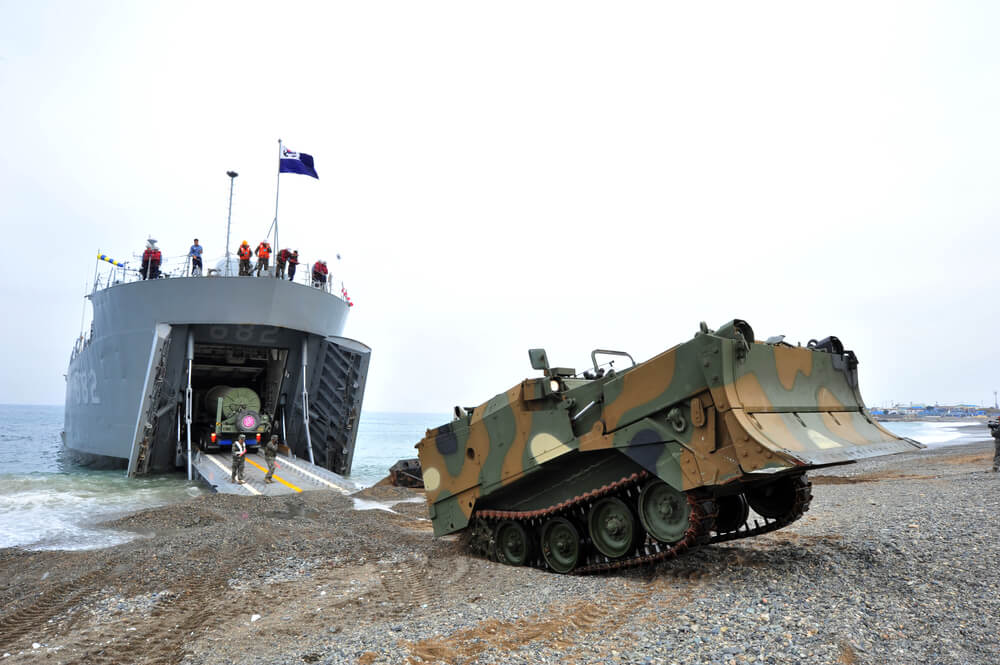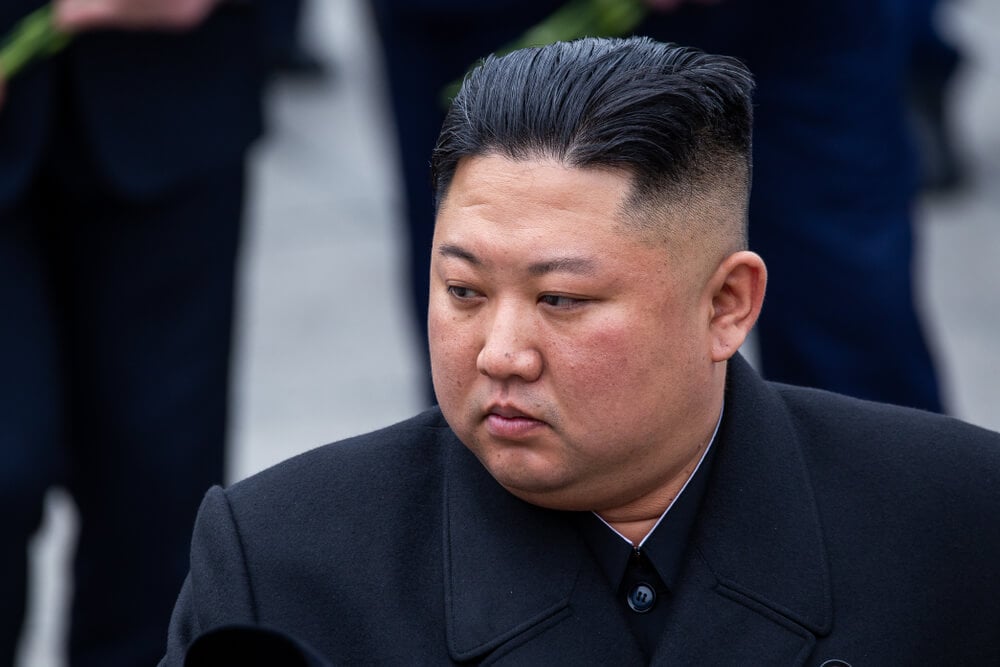Kim Yo Jong, the influential sister of North Korean leader Kim Jong Un, has clearly stated that North Korea's nuclear status is non-negotiable.
In a speech broadcast on state media, she described the demands of the United States and its allies to give up nuclear weapons as a "most hostile act" and a "daydream" and emphasised that her country's nuclear arsenal is firmly enshrined in the constitution and will not be given up under any circumstances.
In other words, Pyongyang is saying that its status as a nuclear power is both de facto and de jure—and that external pressure cannot change this.
Kim Yo Jong's harsh statement was a reaction to the recent meeting of the foreign ministers of the USA, Japan, and South Korea in Brussels, where they reaffirmed their "commitment to denuclearise" the Korean peninsula.
For Pyongyang, such rhetoric from American "vassal forces" is a denial of North Korea's sovereignty and, as Kim says, a confirmation of the justification for North Korean efforts to advance the build-up of the "strongest nuclear force for self-defence".
For the North Korean regime, any outside invitation to denuclearise is considered a hostile act – not an offer to negotiate, but an attempt at disarmament that would leave the country vulnerable.
This latest hard-line message only confirms what the North Korean regime already made official last year: it has built its status as a nuclear power into the country's constitution itself, declaring it a permanent and inviolable principle of governance.
The basis for the regime's survival
In September 2023, the North Korean parliament unanimously adopted an amendment making the nuclear force-building policy "permanent as the basic law of the state, which no one is allowed to flout with anything."
Head of State Kim Jong Un himself emphasised at the time that this status was "irreversible" and pledged to accelerate the production of nuclear weapons to deter what he called "US provocations".
Pyongyang has thus formally cemented nuclear weapons as the basis for the regime's survival; it no longer treats them as a bargaining chip but as an existential guarantee. The regime perceives any foreign attempt to challenge this guarantee as a direct threat.
For decades, the international community has used various methods to persuade North Korea to give up its nuclear ambitions
For decades, the international community has used various methods to persuade North Korea to give up its nuclear ambitions. Diplomatic agreements—from the 1994 Agreed Framework to the Six-Party Talks in the 2000s—led to a temporary freeze on the nuclear programme, but this soon backfired.
In 2006, Pyongyang carried out its first nuclear test despite the agreements reached and then demonstrated its determination to become a nuclear power despite the sanctions with a series of increasingly powerful nuclear and missile tests until 2017.
The highlight of the diplomatic endeavour was an unusual personal initiative by former US President Donald Trump. He held the first direct summit meetings with Kim Jong Un in 2018 and 2019, raising hopes that personal diplomacy could break through the decades-old wall of mistrust between Washington and Pyongyang.
In Singapore in 2018, the two heads of state signed a declaration on "denuclearisation of the Korean Peninsula" but without a concrete plan.
The very next meeting in Hanoi in 2019 ended in failure — North Korea offered a partial abandonment of nuclear capabilities (such as the closure of the Yongbyon facility) in exchange for the lifting of crucial sanctions, which Washington did not accept.
After this failure, the dialogue came to a standstill, and Pyongyang resumed its missile tests soon after. Although relations briefly seemed less tense—Trump even called Kim Jong Un a "friend" and symbolically stepped on North Korean soil during a visit to the demilitarised zone—there was no significant progress towards denuclearisation.
Moreover, Trump himself later declared that he considered North Korea a "nuclear power," implicitly recognising a reality that his predecessors had been unable to change.
The insurance policy of Kim’s rule
After the failure of the negotiations, the North Korean regime returned to harsh rhetoric and accelerated the development of weapons. The next administration in Washington was also unable to change Pyongyang's course — neither through negotiation offers nor through increased military exercises with allies.
Kim Jong Un simply did not respond to initiatives that would require him to give up his nuclear defence shield; instead, he devoted himself to further improving his arsenal.
Even in American security circles, it is now openly acknowledged that Kim is not inclined to give up what he sees as the insurance policy of his rule—nuclear weapons are the ultimate guarantee of regime survival for the North Korean leadership.
The world has changed in a way that favours Pyongyang
Any other approach on their part has probably been wiped out forever by the fates of Libya and Iraq, whose leaders were overthrown after they abandoned their weapons of mass destruction programmes.
In the meantime, the world has changed in a way that favours Pyongyang. The war in Ukraine has strained relations between the superpowers to unprecedented levels and presented North Korea with fresh opportunities.
Shield against international pressure
Russia, which is looking for allies against the Western bloc, is now more favourable towards Pyongyang than before.
After a long period of lukewarm relations, Kim Jong Un and Vladimir Putin renewed their strategic partnership: in 2023, Kim travelled to Russia in an armoured train for a meeting with Putin, and the following year, Putin returned the visit to Pyongyang.
The previously unimaginable meeting in North Korea took place with the highest honours, and the two leaders strengthened military cooperation and reportedly concluded an agreement on mutual defence assistance.
This open political-military closeness to a major power in the UN Security Council gives Pyongyang an extra protective shield against international pressure.
 Moscow will almost certainly veto any attempt to tighten international sanctions against North Korea - Vasily Nebenzya
Moscow will almost certainly veto any attempt to tighten international sanctions against North Korea - Vasily Nebenzya
For its part, North Korea provided Moscow with concrete assistance during the war in Ukraine—from the supply of artillery ammunition to the deployment of military personnel, or "volunteers", who appeared on the battlefield in Russian ranks.
Although Pyongyang has thus openly violated UN resolutions that prohibit such cooperation, the calculation is clear: Moscow will almost certainly veto any attempt to tighten international sanctions against North Korea in return.
Russia and China have already blocked proposals by the United States for new punitive measures against Pyongyang in the Security Council in 2022.
Now, in gratitude for its help in the war, the Kremlin is going even further — it is believed to be willing to indirectly help the regime of Kim Jong Un by supplying oil and grain and even transferring certain military technologies that North Korea lacks.
No longer just a regional problem
The tensions on the Korean peninsula are therefore no longer just a regional problem but part of a broader confrontation between blocs in which Pyongyang is becoming increasingly skilful at balancing the rivalry between the major powers and using it for its own survival.
China, North Korea's traditional patron, remains an important player in this story. Beijing may not approve of its neighbour's nuclear provocations, but it is in its own interests to prevent a collapse of the North Korean regime.
Almost all of North Korea's foreign trade depends on China — it is estimated that over 90%, perhaps even 98%, of all goods flow into the country via the Chinese border.
Despite international sanctions, China has been letting various channels Pyongyang uses to circumvent the restrictions pass for years. Satellite images showed tankers unloading oil for North Korea in Chinese waters, far beyond the reach of inspectors.
While Western countries protested, the Chinese authorities largely ignored such evidence, repeating that "all sides" must show restraint and return to dialogue—implicitly saying that neither Pyongyang nor Washington should "selectively" interpret UN resolutions.
Beijing is prioritising stability over denuclearisation
In practice, Beijing is prioritising stability over denuclearisation: it will not tighten the economic noose around the Kim regime to the point where it suffocates and risks chaos on its border or a reunification of Korea under American auspices.
The Chinese calculation is also based on realpolitik—a nuclear North Korea is better than a collapsed neighbour that could drag China into a maelstrom of crises.
Therefore, Beijing will continue to provide North Korea with enough economic oxygen to survive while rhetorically calling on all actors to engage in "dialogue" and reduce tensions.
In other words, China will maintain a status quo that guarantees that Pyongyang remains an unpleasant but manageable problem and does not become an uncontrollable catastrophe on its doorstep.
Adapting to the reality of a persistent threat
For the United States and its close East Asian allies, this situation represents a deep frustration and a security dilemma.
The rhetoric of "complete denuclearisation" remains the formal common goal of Washington, Seoul, and Tokyo—in part to avoid the perception of condoning North Korea's violation of international norms—but behind closed doors, there is increasing tacit acknowledgement that North Korea's nuclear weapons cannot be removed anytime soon.
Washington is therefore likely to further strengthen its military presence in the region to deter any aggression by Pyongyang.
 The US has intensified joint military exercises with South Korea
The US has intensified joint military exercises with South Korea
Over the past two years, the US has intensified joint military exercises with South Korea, renewed the deployment of B-52 strategic bombers and nuclear-powered submarines in South Korean harbours and established new consultation mechanisms with Seoul on nuclear deterrence.
Tokyo, which is also within range of North Korean missiles, has announced the biggest increase in its defence capabilities since World War II— including a doubling of its military budget and the procurement of longer-range missiles capable of hitting launch pads in North Korea in the event of war.
Seoul, facing a neighbour with nuclear warheads, is growing increasingly dependent on the US's "nuclear umbrella." The government of President Yoon Suk Yeol (who was dismissed a few days ago by the Constitutional Court) has demanded stronger security guarantees from the US, including greater visibility of US nuclear forces in the defence of South Korea.
At the same time, there is a strengthening of views among South Koreans that their country should also consider its own nuclear deterrent—an idea that, until recently, was on the fringes but is now gaining support in public opinion, although it remains highly controversial politically and diplomatically.
In short, America's allies are adapting to the reality of a persistent North Korean threat by bolstering their own defences and alliance cohesion, each in their own way.
Potential for blackmail
Despite international calls for its abolition, North Korea's nuclear programme continues unhindered during the multi-year standstill.
Pyongyang has probably produced several dozen nuclear warheads so far and is rapidly working to perfect missiles that can reach US soil.
Some analyses warn that North Korea could possess over a hundred or even several hundred warheads and an entire arsenal of intercontinental missiles in a few years—which would dramatically increase its potential for blackmail and could directly threaten cities in the USA.
Such a scenario would leave Washington wondering how much risk it is willing to take in defence of its Asian allies.
Even the most powerful dare not seriously consider a military solution against a country that possesses nuclear weapons
The reality is that a second Korean War today would also mean the possibility of a nuclear attack on Tokyo, Seoul, and perhaps Los Angeles or New York—a cost that no US administration can take lightly.
It was this shadow of nuclear retaliation that gave the North Korean regime what it sought: deterrence against external intervention aimed at regime change.
Even the most powerful dare not seriously consider a military solution against a country that possesses nuclear weapons, no matter how weak that country may be in a conventional sense.
Kim Jong Un understands this very well – the nuclear arsenal is his survival insurance, a shield that guarantees him that he will not suffer the fate of Muammar Gaddafi or Saddam Hussein.
De facto nuclear power
If this is the case, the question arises: what can the rest of the world do now?
Decades of sanctions, negotiations and threats have not eliminated North Korea's nuclear arsenal. Instead, it has become firmly institutionalised and is continually undergoing improvements.
Realpolitik demands a sober assessment of the facts: North Korea is a de facto nuclear power, and the international community must accept this fact and adapt to it.
The world must acknowledge Pyongyang's status as a nuclear state and devise a new coexistence strategy accordingly.
This does not mean formally recognising or legitimising violations of global nuclear non-proliferation norms—it means accepting the fact that Pyongyang will not voluntarily disarm under any circumstances and that stubbornly insisting on an impossible goal can do more harm than good.
Expecting North Korea to one day agree to destroy all its warheads is illusory at this stage
Instead of futile demands for the surrender of weapons, the focus of world strategy should shift to arms control and deterrence.
Expecting North Korea to one day agree to destroy all its warheads is illusory at this stage, so it would be more sensible to at least try to limit the further growth and danger of this arsenal.
Negotiations aimed at freezing the status quo—such as a moratorium on new nuclear tests or limiting the production of fissile materials—may have a better chance of success than maximalist demands for complete denuclearisation.
In return, Pyongyang could receive a partial lifting of the most severe sanctions; humanitarian and economic aid; and formal security guarantees that no aggression will take place against the country as long as it honours the agreements.
Such a step-by-step approach—a kind of arms control with North Korea—may be less satisfying from a moral perspective, but it could practically prevent the most dangerous scenarios.
Balance of fear
At the same time, the allies will further strengthen the deterrence options for Pyongyang to let it know that any attempt to use nuclear weapons would mean the end of the regime itself.
This balance of fear, delicate as it may be, worked during the Cold War — nuclear weapons were never used directly between superpowers precisely because the costs were unimaginable.
A similar principle of "Mutual Assured Destruction" is now being applied to the Korean situation: Kim Jong Un knows that a nuclear attack on neighbours or America will mean self-destruction, while the US and South Korea know that an attempt to overthrow the North Korean regime by force will inevitably put the lives of millions of people at risk.
 It would make sense to establish so-called "hot lines" between Pyongyang and Washington or between the two Koreas - Kim Jong Un
It would make sense to establish so-called "hot lines" between Pyongyang and Washington or between the two Koreas - Kim Jong Un
Paradoxically, nuclear weapons, the greatest threat, also serve as a safeguard against direct, large-scale conflict, provided that the actors remain rational.
Of course, a strategy of coexistence with a nuclear North Korea would have to include more open diplomatic channels to prevent incidents.
Even if there is no trust, both sides have an interest in avoiding a fatal misunderstanding—for example, a routine military test or exercise to be misunderstood as an attack.
It would therefore make sense to establish so-called "hot lines" between Pyongyang and Washington (as the USA had with the Soviet Union) or between the two Koreas so that direct communication and clarification of the situation can take place in times of crisis.
Accepting that North Korea has nuclear weapons could actually help start these communication channels — once the requirement to give up their weapons is taken away, there can be talks about practical ways to lower risks and create some basic understanding between the countries.
Recognition of reality
North Korea has defied all expectations for years and is now openly showing it: its nuclear status is permanently constitutional and irreversible. The world must take note of this.
Continuing the current policy—a combination of economic sanctions and ritual calls for denuclearisation—only gives Pyongyang time to further expand its nuclear arsenal while increasing the risk of a fatal mistake.
Accepting North Korea as a nuclear power is not an act of surrender but a recognition of reality
The alternative may be unpleasant, but it is necessary: finding a modus vivendi with another nuclear state, however unpredictable and dangerous it may be.
In this new framework, the goal of the international community would no longer be the impossible disarmament of Pyongyang but the containment of the threat and the preservation of fragile peace.
Accepting North Korea as a nuclear power is not an act of surrender but a recognition of reality—and only by recognising reality can viable solutions emerge.